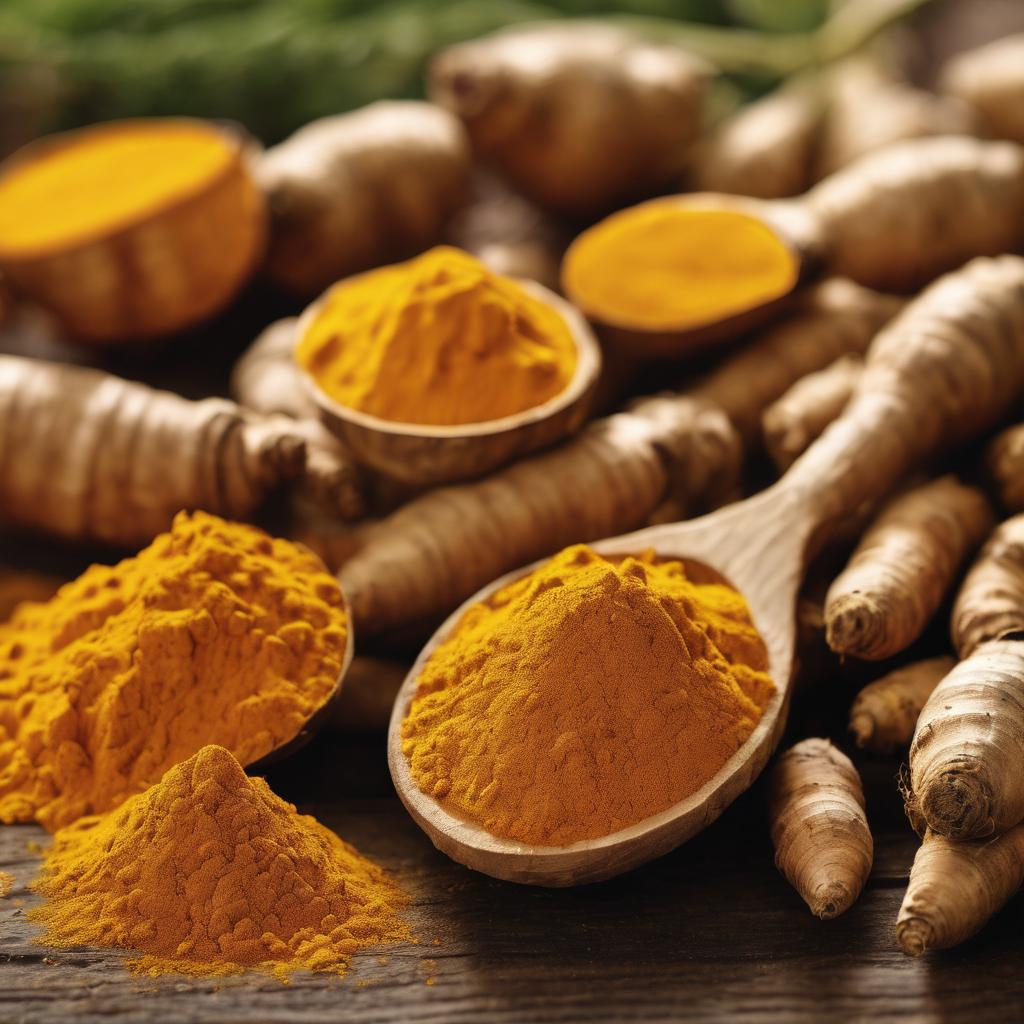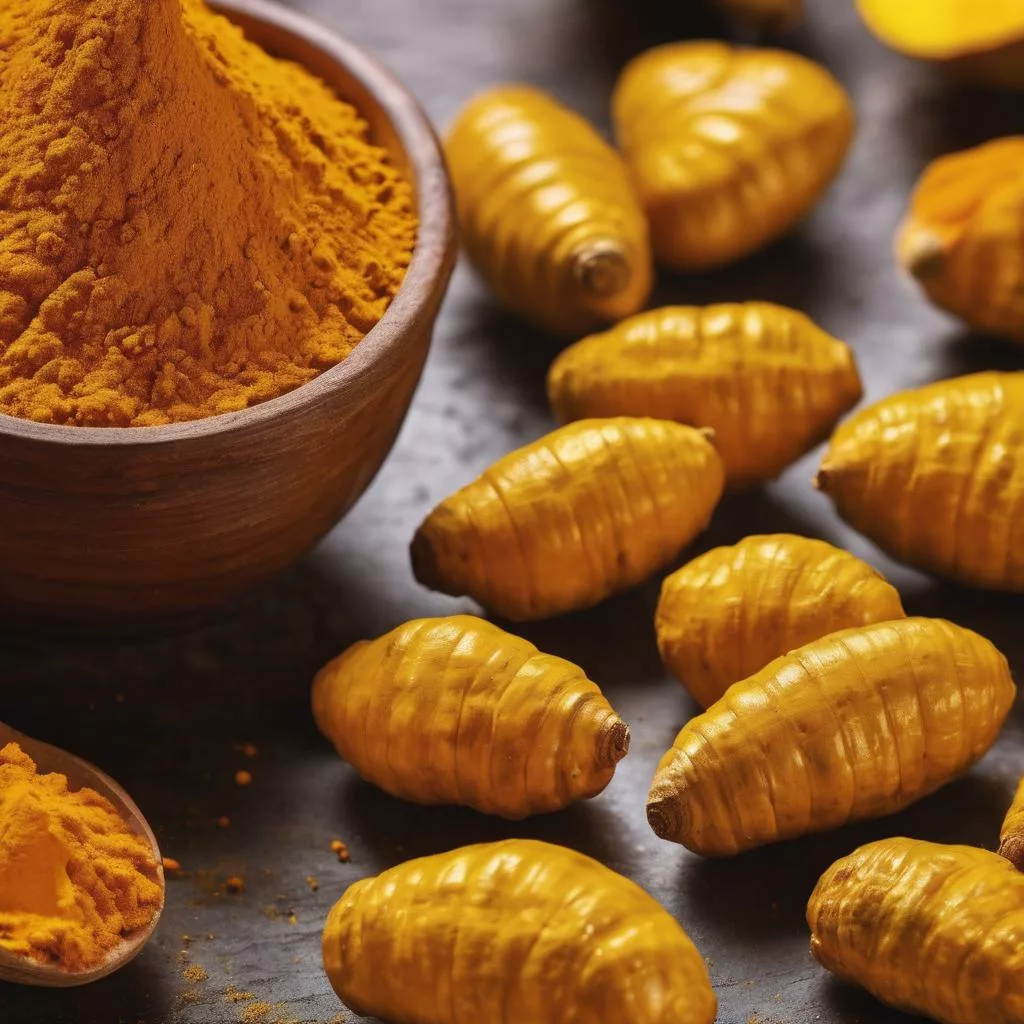
Are you tired of feeling sluggish and weighed down by poor liver health? Look no further than turmeric, your liver’s new best friend. With its powerful anti-inflammatory properties and antioxidant effects, it works tirelessly to protect and regenerate your liver. It stimulates bile production, regulates cholesterol levels, and even has anti-cancer potential. Say goodbye to liver troubles and hello to a healthier you with these 8 best ways to boost liver health naturally.
Key Takeaways
- It’s active compound, curcumin, has powerful anti-inflammatory and antioxidant properties that can reduce markers of inflammation in liver diseases like hepatitis and fatty liver disease.
- Increases the production of enzymes that detoxify, helping to eliminate harmful toxins and waste products from the organ and promoting overall liver health and function.
- Reduces oxidative stress in the liver by scavenging free radicals, boosting the activity of antioxidant enzymes, and enhancing the liver’s detoxification process.
- Promotes bile flow stimulation, increases bile production, and supports proper digestion, nutrient absorption, and cardiovascular health. It also has potential anti-cancer effects and aids in liver cell regeneration.
Anti-inflammatory Properties
One of the key reasons why turmeric is beneficial for your liver is its ability to reduce inflammation. Turmeric contains a compound called curcumin, which has been extensively studied for its anti-inflammatory properties. Inflammation is the body’s natural response to injury or infection, but chronic inflammation can damage liver cells and lead to liver disease.
Curcumin in turmeric helps to inhibit the activity of inflammatory enzymes, reducing inflammation and protecting the liver. Several studies have shown that turmeric can effectively reduce markers of inflammation in liver diseases such as hepatitis and fatty liver disease.
Additionally, turmeric has been found to modulate liver enzymes, such as alanine transaminase (ALT) and aspartate transaminase (AST), which are important indicators of liver health. Incorporating turmeric into your diet or taking turmeric supplements can help support liver health by reducing inflammation and improving liver enzyme levels.
Turmeric’s Antioxidant Effects
Turmeric’s antioxidant effects play a crucial role in boosting liver health naturally. The active compound in turmeric, known as curcumin, has been found to support liver detoxification by helping to remove harmful toxins from the body. Additionally, curcumin’s antioxidant properties help reduce oxidative stress in the liver, which can contribute to liver damage. By incorporating turmeric into your diet or taking supplements, you can harness its powerful antioxidant effects and promote optimal liver function.
Liver Detoxification Benefits
To experience the liver detoxification benefits of turmeric’s antioxidant effects, you can incorporate it into your daily routine. Turmeric contains a compound called curcumin, which has been shown to have powerful antioxidant properties. These antioxidants help protect the liver from damage caused by free radicals and oxidative stress. By including turmeric in your diet, you can support your liver health naturally.
Research has indicated that turmeric can increase the production of enzymes that detoxify the liver, helping it to eliminate harmful toxins and waste products. Additionally, turmeric has anti-inflammatory properties that can reduce inflammation in the liver, promoting its overall health and function.
There are several ways to incorporate turmeric into your daily routine. You can add it to your meals, such as curries, stir-fries, or smoothies. Alternatively, you can take turmeric supplements, which are available in capsule or powder form. Remember to consult with your healthcare provider before starting any new supplement.
Reduced Oxidative Stress
To further enhance the liver detoxification benefits and support its overall health, incorporate turmeric into your daily routine to reduce oxidative stress with its powerful antioxidant effects. Oxidative stress occurs when there is an imbalance between the production of harmful free radicals and the body’s ability to neutralize them with antioxidants.
This imbalance can lead to cellular damage and inflammation, which can negatively impact liver health. Turmeric contains a compound called curcumin, which has been found to possess strong antioxidant properties. Studies have shown that curcumin can help reduce oxidative stress in the liver by scavenging free radicals and boosting the activity of antioxidant enzymes.
By reducing oxidative stress, turmeric can contribute to improved liver function and enhanced liver health. Incorporating turmeric into your daily routine, whether through cooking or supplementation, can be a simple yet effective way to support your liver health.
Further Research
10 Proven Health Benefits of Turmeric and Curcumin., 2021, March 14, https://www.healthline.com/nutrition/top-10-evidence-based-health-benefits-of-turmeric#:~:text=Turmeric%20%E2%80%94%20and%20especially%20its%20most
Antioxidant Health Effects. (2009, November 24). https://www.news-medical.net/health/Antioxidant-Health-Effects.aspx
Detoxification Support
To enhance your liver’s detoxification process, incorporating the use of turmeric is a highly effective and natural approach. Turmeric has been found to have a significant impact on liver enzymes, which play a crucial role in the detoxification of harmful substances in the body. Studies have shown that turmeric can increase the production of these enzymes, thereby enhancing the liver’s ability to remove toxins.
Additionally, turmeric’s role in liver health promotion goes beyond its impact on enzymes. It contains powerful antioxidants that help protect the liver from damage caused by oxidative stress. Furthermore, turmeric has anti-inflammatory properties that can reduce inflammation in the liver, further supporting its detoxification functions. By incorporating turmeric into your diet or taking it as a supplement, you can support your liver’s natural detoxification process and promote overall liver health.
Liver Protection
Turmeric offers liver protection through its antioxidant properties and detoxification effects. The antioxidants in turmeric help combat free radicals that can damage liver cells and contribute to liver diseases. Additionally, turmeric supports the liver’s detoxification process, aiding in the removal of toxins from the body. Incorporating turmeric into your diet or taking a turmeric supplement can help protect and promote the health of your liver.
Antioxidant Properties
How can turmeric protect your liver and what are its antioxidant properties? Turmeric, a potent spice derived from the Curcuma longa plant, has been used for centuries in traditional medicine for its numerous health benefits. When it comes to liver health, turmeric plays a crucial role in protecting this vital organ due to its antioxidant properties. Here are three ways turmeric’s antioxidant properties benefit your liver:
- Neutralizing free radicals: Turmeric contains curcumin, a powerful antioxidant that helps neutralize harmful free radicals in your liver cells, reducing oxidative stress and preventing liver damage.
- Boosting liver enzyme production: Turmeric has been shown to support the production of important liver enzymes, such as glutathione S-transferase and superoxide dismutase, which help detoxify your liver and enhance its overall function.
- Reducing inflammation: Turmeric’s anti-inflammatory properties can help reduce liver inflammation, a common condition that can lead to liver disease if left untreated.
Detoxification Effects
Are you wondering how turmeric helps with liver detoxification and protects your liver? Turmeric has long been recognized for its detoxification benefits, particularly when it comes to liver health. The liver is responsible for filtering toxins from the body, and turmeric has been found to support this crucial function. Curcumin, the active compound in turmeric, has been shown to increase the production of enzymes that help detoxify the liver.
It also enhances the liver’s ability to break down and eliminate toxins, reducing their harmful effects on the body. Additionally, turmeric has anti-inflammatory properties that can help reduce liver inflammation, further supporting its detoxification process. Incorporating turmeric into your diet or taking it as a supplement can be an effective way to promote liver health and support its natural detoxification pathways.
Further Research
Can turmeric supplements harm the liver? How can you have this immunity booster safely?, 2023, August 22, The Indian Express,https://indianexpress.com/article/health-wellness/turmeric-supplements-harm-liver-immunity-booster-8903337/
Turmeric – an overview | ScienceDirect Topics. https://www.sciencedirect.com/topics/pharmacology-toxicology-and-pharmaceutical-science/turmeric
Bile Production Stimulation
When consumed regularly, turmeric stimulates bile production in your liver, which is essential for proper digestion and nutrient absorption. This natural spice has been used for centuries in traditional medicine for its numerous health benefits. Here are three ways turmeric promotes bile flow stimulation and improves liver function:
- Increases bile production: Turmeric contains a compound called curcumin, which has been shown to increase bile production in the liver. Bile plays a crucial role in breaking down fats and facilitating their absorption in the small intestine.
- Enhances liver detoxification: Turmeric supports the liver’s detoxification processes by stimulating the production of bile. This helps remove toxins and waste products from the body, promoting overall liver health.
- Improves nutrient absorption: By stimulating bile production, turmeric helps improve the absorption of essential nutrients, such as vitamins A, D, E, and K, as well as fat-soluble antioxidants.
Incorporating turmeric into your diet can be a simple and effective way to support your liver health and promote proper digestion and nutrient absorption.
Liver Regeneration Assistance
As you continue to explore the benefits of turmeric for liver health, it is important to delve into how turmeric assists in the regeneration of the liver. Turmeric’s role in liver disease prevention is well-documented, and its impact on liver enzyme levels is significant. Research suggests that turmeric’s active compound, curcumin, has the ability to reduce inflammation and oxidative stress in the liver, which are key factors in liver regeneration.
Additionally, curcumin has been found to stimulate the production of bile, which aids in the digestion and absorption of fat. By supporting the liver’s natural detoxification processes, turmeric helps to protect and regenerate liver cells. Incorporating turmeric into your diet or taking turmeric supplements may promote liver health and assist in the regeneration of this vital organ.
Further Research
Gilgenkrantz, H., & Collin de l’Hortet, A. (2018). Understanding Liver Regeneration. The American Journal of Pathology, 188(6), 1316–1327 https://ajp.amjpathol.org/article/S0002-9440(17)31026-X/fulltext
Michalopoulos, G. K., & Bhushan, B. (2020). Liver regeneration: biological and pathological mechanisms and implications. Nature Reviews Gastroenterology & Hepatology, 18(1), 1–16, https://www.nature.com/articles/s41575-020-0342-4?proof=t
Cholesterol Regulation
To regulate cholesterol levels, turmeric supports your liver’s natural processes. Turmeric has been shown to have a positive effect on blood sugar levels and can help regulate cholesterol by influencing liver enzymes. Here are three ways turmeric can help regulate your cholesterol levels:
- Decreases LDL cholesterol: Turmeric has been found to reduce the levels of LDL cholesterol, which is commonly known as the “bad” cholesterol. High levels of LDL cholesterol can lead to plaque buildup in your arteries, increasing the risk of heart disease.
- Increases HDL cholesterol: Turmeric has been found to increase the levels of HDL cholesterol, often referred to as the “good” cholesterol. HDL cholesterol helps remove LDL cholesterol from your bloodstream, reducing the risk of heart disease.
- Reduces inflammation: Turmeric’s anti-inflammatory properties can help reduce inflammation in the body, including inflammation in the blood vessels. This can help improve overall cardiovascular health and reduce the risk of heart disease.
Turmeric’s Anti-cancer Potential

To continue exploring the benefits of turmeric, let’s delve into its potential for combating cancer. Turmeric has gained attention for its anti-cancer properties, with research suggesting its role in preventing metastasis and impacting cancer cell apoptosis. Metastasis is the spread of cancer cells from the primary site to other parts of the body, leading to the formation of secondary tumors.
Turmeric has shown promise in inhibiting this process by suppressing the activity of molecules involved in cell migration and invasion. Additionally, turmeric has been found to induce apoptosis, a process of programmed cell death, in cancer cells. This can help to eliminate cancer cells and prevent their uncontrolled growth. Incorporating turmeric into your diet or taking turmeric supplements may be a simple yet effective way to potentially reduce the risk of cancer progression.
| Turmeric’s Role in Preventing Metastasis | Turmeric’s Impact on Cancer Cell Apoptosis |
|---|---|
| Inhibits cell migration and invasion | Induces programmed cell death in cancer cells |
| Suppresses activity of molecules involved in metastasis | Helps eliminate cancer cells |
| Potential to reduce risk of cancer progression | Prevents uncontrolled growth of cancer cells |
| Promising anti-cancer property | Simple and effective way to combat cancer |
| Incorporate turmeric into diet or take turmeric supplements | May reduce the risk of cancer progression |
Frequently Asked Questions
How does turmeric benefit liver health?
Turmeric’s liver-boosting benefits are attributed to its key active compound, curcumin. Curcumin exhibits potent anti-inflammatory and antioxidant properties, which work synergistically to protect the liver from damage. By reducing inflammation and neutralizing free radicals, turmeric supports overall liver health and function.
Can turmeric prevent liver diseases?
While definitive conclusions require further research, emerging studies suggest that turmeric’s anti-inflammatory and antioxidant effects may contribute to preventing liver diseases. By mitigating inflammation and oxidative stress within the liver, turmeric shows promise as a potential preventive measure against various liver conditions.
Can turmeric help with liver detoxification?
Turmeric aids the liver’s natural detoxification processes by stimulating the production of enzymes responsible for eliminating toxins. While turmeric plays a supportive role, it’s crucial to emphasize an overall healthy lifestyle, including a balanced diet and adequate hydration, for optimal liver detoxification.
How does turmeric compare to other liver-boosting supplements?
Turmeric’s appeal for liver health lies in its natural anti-inflammatory and antioxidant properties. While other liver supplements may offer benefits, the unique combination of compounds in turmeric, particularly curcumin, makes it a popular choice. Choosing the right supplement depends on individual health needs, and consulting a healthcare professional is advisable.
Can turmeric be used as a preventive measure for liver issues?
Including turmeric in your diet may serve as a preventive measure for liver issues due to its multifaceted benefits. The anti-inflammatory and antioxidant properties of turmeric contribute to overall liver health. However, maintaining a holistic approach to health with a balanced diet and regular exercise remains crucial for comprehensive preventive measures.
Conclusion
In conclusion, incorporating turmeric into your daily routine can greatly benefit your liver health. Its anti-inflammatory and antioxidant properties help reduce inflammation and oxidative stress while supporting detoxification and bile production. Turmeric also offers protection against liver damage and aids in regeneration.
Furthermore, it has been shown to regulate cholesterol levels and potentially prevent certain types of cancer. By adding turmeric to your diet, you can naturally enhance your liver function and overall well-being.

